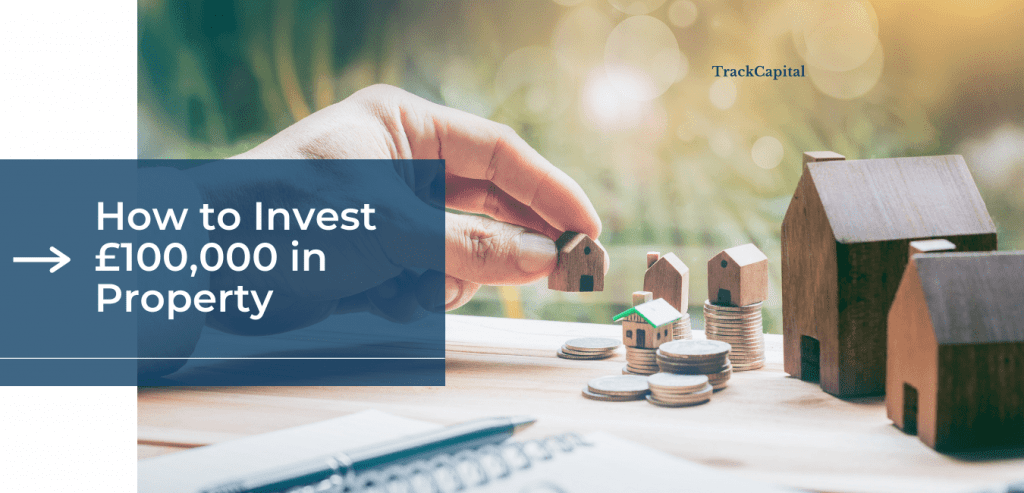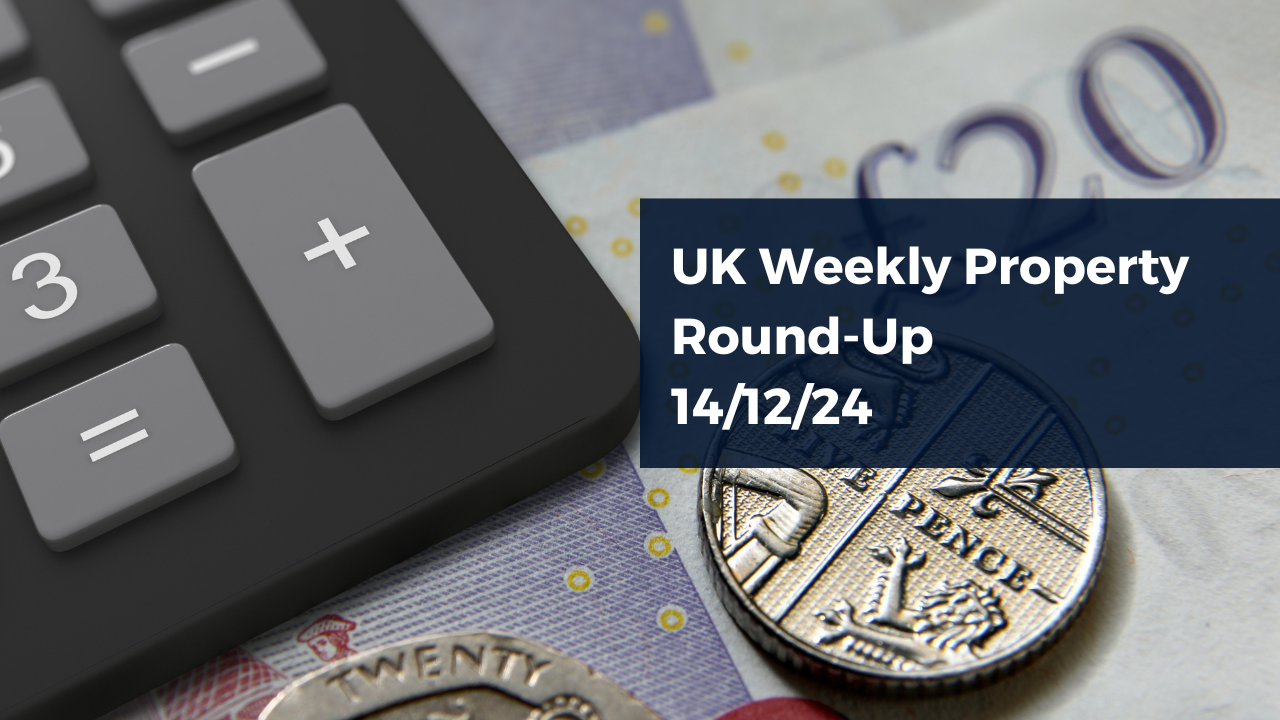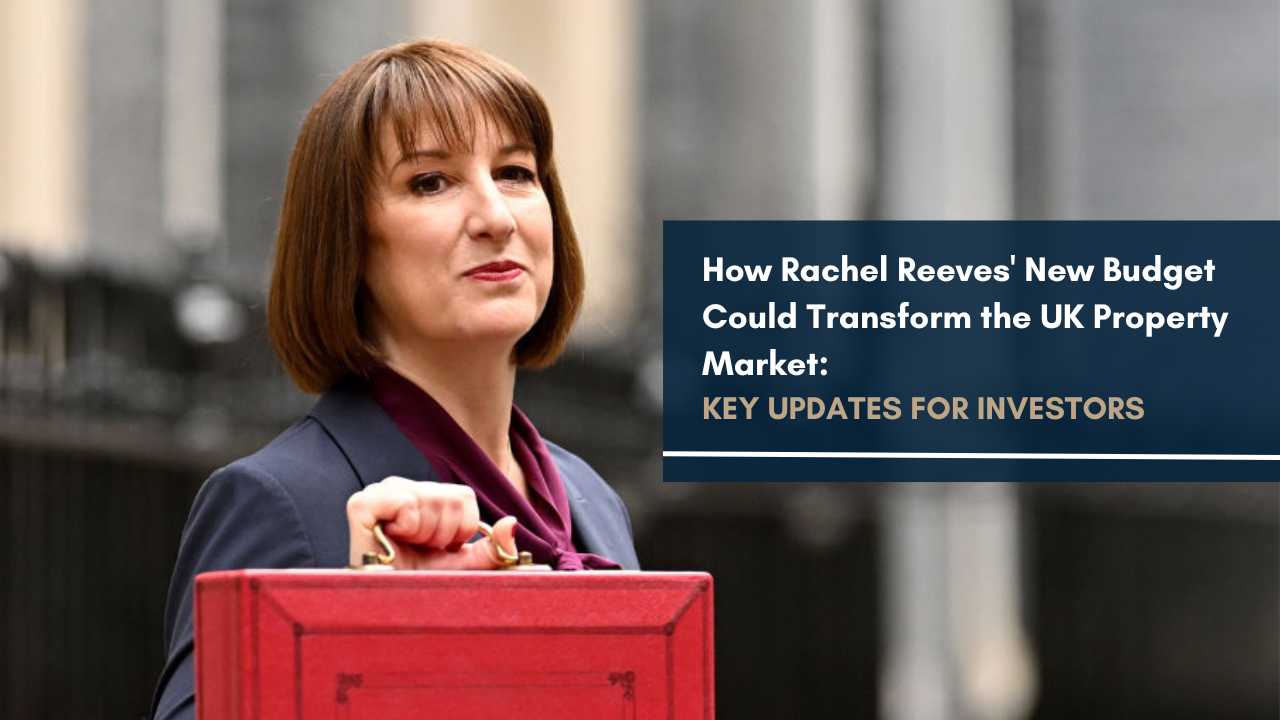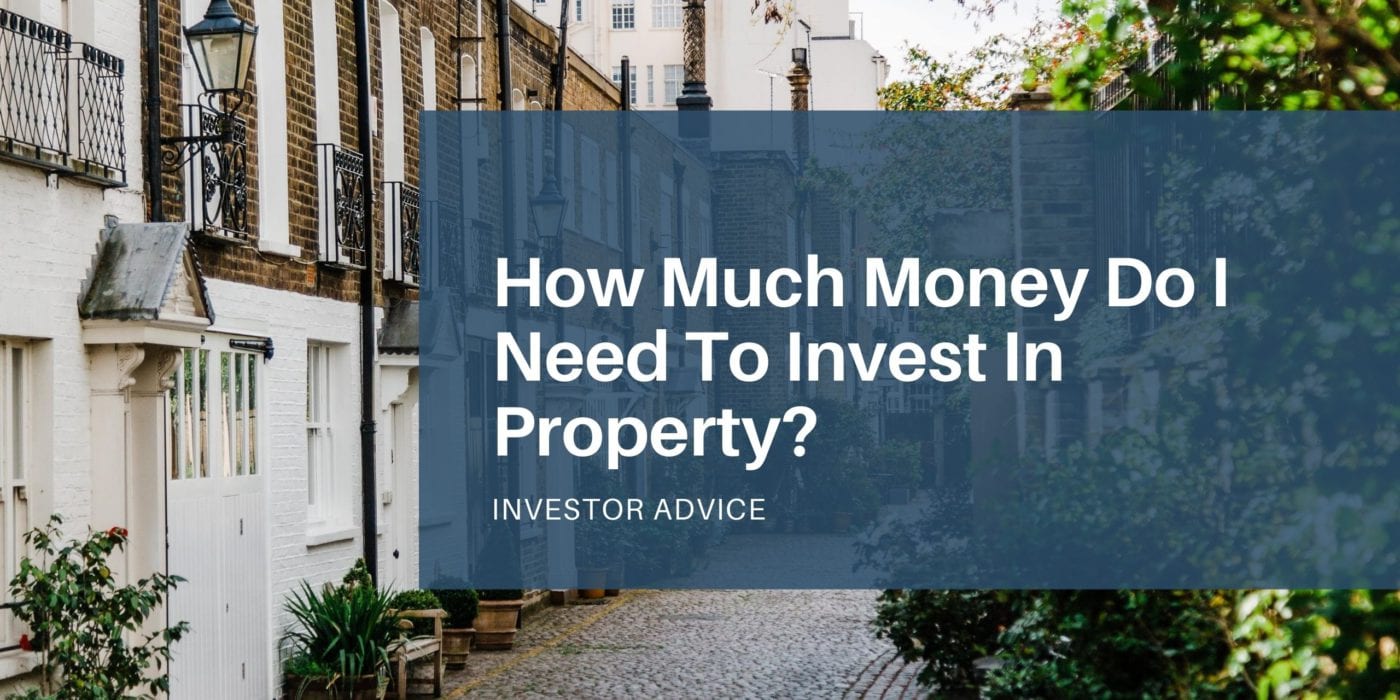Anyone considering investing in the UK property market with an initial sum of £100,000 is in a very favourable position.
Most property investors we work with have a budget between £50,000 and £100,000, so from our experiences of advising investors at this budget level, we know it offers a tremendous amount of flexibility and choice – you may choose to purchase a single, premium home or you may opt for multiple lower-cost properties. You could even consider a minor development project.
To help guide your decision-making, we’ve written this guide, which will cover:
- Our recommended approach for investing £100k in property
- Everything else you need to consider before investing your £100k
- Why the property market is a good choice compared to other assets
- Where to invest your £100k
The Best Way To Invest £100k In Property
Our recommended approach for investors with a £100,000 budget centres around building a portfolio and extracting equity to grow the portfolio further. Here’s how it works:
- Split your £100k budget into two £50k chunks.
- Use each £50,000 chunk as a deposit on a buy-to-let mortgage.
- You can now purchase two properties worth up to £200k each.
- Be patient, make your monthly mortgage repayments, and monitor the property value.
- When your mortgage deal ends, refinance to extract equity.
- Pay off the original mortgages.
- Use the remaining cash as a deposit to buy more properties.
Now, let’s use an example to show how this can play out in practice.
You have a budget of £100k.
You purchase two city-centre flats, putting down a £50k deposit on each. Each flat costs £200k, and with a
buy-to-let mortgage, you’ve covered the remaining £150k on each property.
After 5 years, the value of each property appreciates by 30%, so they’re now worth £260,000. This means you’ve gained £60,000 in equity per property, totalling £120,000.
You decide to refinance each property, taking out 75% of the new value as a mortgage. For each flat valued at £260k, 75% would be £195k, which is £45,000 more than the initial £150k mortgage.
After paying off the original mortgages, this means you are left with at least £90,000 in cash (£45,000 * 2).
We’ve not included the impact of paying off your mortgage during this time as it’s different for everyone, and some investors opt for an interest-only mortgage.
You can now repeat the process. Split your £90,000 into chunks, use each chunk as a deposit to purchase more properties, and start the cycle again.
This approach means you can consistently expand your portfolio over time – taking an initial £100k and turning it into a portfolio worth 5-10x that amount in just a few years.
What Else Is There To Consider Before Investing Your £100k?
Investing in property is a relatively simple process, but there are several factors to consider before you start following our recommended approach:
- Goals
- Risk appetite
- Strategy
- Finding a suitable property
Your Goals
Before putting a £100k investment plan in place, you must consider your personal goals.
To set a goal, consider your principal motivation for property investment. For example, you might want to build a healthy pot of funds ready for when you retire. Then, turn your motivation into a SMART goal – Specific, Measurable, Achievable, Relevant, and Time-Bound.
For example, a SMART goal for a property investor who wants to build a retirement fund could be:
Build a property portfolio worth at least £2,000,000 by the age of 65.
Your Risk Appetite
This is perhaps the most critical question that every investor needs to ask themselves at the beginning of their journey. There is no shame in the desire to secure safe, sound investments, even if that means returning a slightly lower profit than high-risk alternatives.
Many investors find that their risk appetite grows as their experience does. Thus, as your knowledge of the industry grows alongside your financial freedom, you might find yourself in a position willing to try higher-risk projects and strategies. Speaking of which…
Your Strategy
Your strategy will be influenced by where you are now (your starting situation), compared to where you want to be (your goal), tempered by your appetite for risk. There are many
property investment strategies, but we’re major advocates of the
buy-to-let model, so that’s what we’ve focused on in this article. Plus, buy-to-let is simple, requires relatively little hands-on work, and offers an excellent balance of risk and reward.
Let’s say you are currently 40 years old. Continuing with the example SMART goal we set earlier, that means you have 25 years to turn your current £100,000 pot into £2,000,000 – a 20x increase.
Given you have a good amount of time to make this happen, the buy-to-let model is an excellent choice. It allows you to play the long game and let market forces do much of the work for you.
With a £100,000 starting budget, you can follow our recommended approach and easily reach this figure:
| Step |
Portfolio Value |
| 1. Initial Investment – Start with £100k, split into two £50k deposits on buy-to-let mortgages for two properties worth £200k each. |
£400,000 |
| 2. Generate Rental Income – Collect rental income from both properties, covering mortgage payments and adding some cash flow for reinvestment. |
£400,000 |
| 3. Property Appreciation – After a few years, property values increase by 30%, making each property worth £260k. |
£520,000 |
| 4. Refinance to Extract Equity – Refinance to release £45k from each property, providing £90k to reinvest. |
£520,000 |
| 5. Use Equity for Additional Properties – Use the £90k as deposits on two more properties worth £180k each, increasing portfolio size. |
£880,000 |
| 6. Continue Generating Rental Income – Collect rent from all four properties, further building cash flow. |
£880,000 |
| 7. Further Appreciation – Over time, all four properties appreciate by 30% again. |
£1,144,000 |
| 8. Refinance Again – Release equity from all four properties, gaining funds to buy additional properties. |
£1,144,000 |
| 9. Reinvest Equity – Purchase four more properties worth £200k each with the released equity, adding an extra £800,000 to your portfolio value. |
£1,944,000 |
| 10. Further Appreciation – Over time, all eight properties continue to appreciate, pushing you over the £2million mark. |
£2,000,000+ |
Of course, there are two risks with this approach that you should consider (see
Risk Appetite, above):
- You will be highly leveraged with mortgage debt. However, as long as you invest sensibly and ensure there is your rental income includes a good buffer (extras to cover any additional costs, changes in rates, etc), then meeting your monthly repayments should be no problem – especially with the growing demand for rental property in the UK.
- The value of each property is not guaranteed to grow over time. That said, it is a likely outcome given the historic performance of the property market.
Finding A Suitable Property
After establishing your goals, risk appetite, and strategy, you should consider how you will find and purchase a suitable property that aligns with your investment plan. This step is both exciting and crucial, as it involves a series of actions:
- Research the market: Identify areas with the highest growth potential. Look at factors like local employment rates, future infrastructure projects, and average rental prices. Our rental yield map may help.
- Engage with local experts: Consider working with an advisor that specialises in buy-to-let properties. They can provide valuable insights into the best areas to invest in and help you find properties that fit your criteria. For reference, this is where we come in – feel free to get in touch to learn more.
- Conduct due diligence: Before making an offer on a property, conduct thorough due diligence. This includes reviewing the property’s condition, understanding the terms of the lease if it’s a leasehold, and assessing any potential legal issues.
- Secure financing: If you’re using buy-to-let mortgages, make sure you get a mortgage in principle before you start making offers. This shows sellers you’re serious and can move quickly.
- Make an offer: When you find a property that meets your requirements, make an informed offer based on your research.
- Solicitor and survey: Once your offer is accepted, instruct a solicitor to handle the legal work, and commission a property survey to ensure there are no hidden issues.
- Close the deal: Work with your solicitor and mortgage lender to finalise the purchase. This will include signing contracts, exchanging with the seller, and paying the deposit.
- Property management: Decide whether you will manage the property yourself or use a property management company. If you’re new to being a landlord or if you have multiple properties, a management company can be very helpful.
And that’s it. By following the steps above, you can invest your £100k budget into the UK property market effectively and efficiently – setting yourself on a path to reaching your investment goals.
Why Should You Choose Property?
£100,000 is a substantial sum of money. Therefore, you need to be sure that the property market is a suitable investment for you.
One of the most significant benefits of choosing property is the option of securing
leverage. For example, a £100,000 investment can be used to quickly secure a £200,000 property portfolio. Few other investment assets offer such leveraging, and the ones that do are considered high-risk (such as futures contracts).
Meanwhile, property is considered a very
safe investment. Between 2007 and 2017, the number of households occupying the private rented sector grew an incredible 2.8 million (
63%). Interestingly, in the same period, the number of properties bought with a mortgage fell from 9.8 million to 8.3 million. Space in the UK is finite, and that has never been more apparent than in our city centres. The capital growth opportunity is enormous, with the demand for luxury city centre apartments continually rising.
Additionally, property offers
flexibility. You can choose to be as hands-on or hands-off as you like. Some investors love to be in the thick of it, dealing with their tenants personally. Conversely, other investors thrive with a passive approach, hiring a management agency to oversee their
property portfolio.
Where Should You Invest Your £100k?
With a budget of £100,000, you are better off looking outside London and the South East. Even if you used the full £100,000 as a deposit on a single property in London, it likely wouldn’t be enough, with
the average home costing £685,000.
Your £100,000 budget will stretch further in the North, though. And this is especially true if you’re interested in building a multi-property portfolio, in the manner we outlined above. Northern cities, such as
Liverpool,
Manchester and
Sheffield are excellent options.
These locations offer excellent long-term potential and are attracting investors from all over the world. The lower property prices don’t necessarily mean they are a worse investment either – in fact, it’s the opposite. Due to lower purchase prices, investors can achieve stronger yields and run their portfolios more profitably.
£100k Investment Summary
- £100k is a substantial deposit to begin your property development career, and there is a range of strategies you could adopt.
- Carefully considering your goals and your risk appetite is essential before beginning any property development journey.
- A long-term buy-to-let strategy, split across two properties, is a solid approach for a £100,000 budget, although you may tailor accordingly based on your goals, level of risk, and starting situation.
- A £100k budget may rule out London but opens up the North, where greater ROIs can be achieved.
If you would like support and advice on the best way to invest £100k in property (or any budget), then
get in touch with our team.
Dive Deeper
How To Invest £50,000 In Property
How To Invest £200k In Property
How To Invest £500k In Property 



































